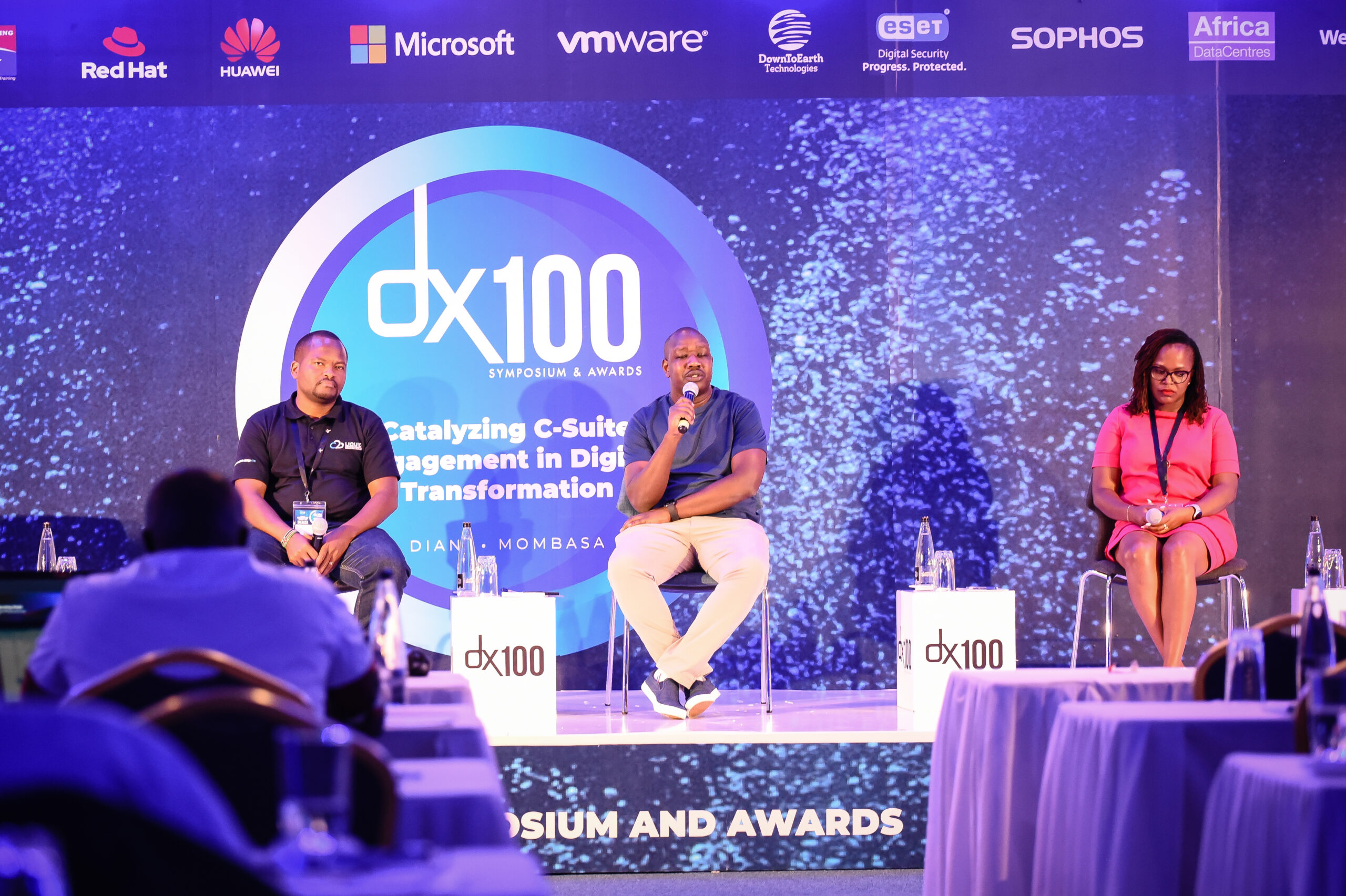advertisement
People, Processes, Or Technology?

Influencer Panel 5: When Innovating, Think People, Processes, Then Technology
Innovation is a process, not an event. Innovation is about the future, not the past. Innovation is about people and organisations, not products and services. Innovation is about thinking differently about what you do. When you want to innovate, first think of the processes, then the people, and then allow technology to enable innovation. But, what about product innovation?
Moderator: Judy Muoka, CIO
Panellists:
Anita Chege, Head, Products, Digital & Marketing, Letshego
Richard Muthua, Executive Head, Cloud and Cyber Security – East Africa
Manases Japhet Murrey, Tech Strategy Leader, CEO, Baran Telecom Networks
Go.
advertisement
Digital transformation is a complex beast with multiple sides. You can’t just look at the technical aspect when it comes to transforming the organisation. Neither can you focus purely on processes. You would also need to look at the person you are working with and their value. In the past, customers bought products, then they started buying solutions, and now they are interested in buying the right outcome. But, if an organisation puts less importance on the actual process that defines the outcome, you will meet resistance, because people struggle to adopt it and it does not match their day-to-day. It makes it tricky, finding a win-win situation.
A lot of organisations have also invested in a monitoring solution, realising that to get the right outcome, they would need to invest. A lot. And, a lot of the time, the solution is bought to solve a problem, but it is never bought to support the tech. Mainly because you can’t get true value if you do not think about the processes. On that note, tech comes after you have thought through the processes and then invest in the tech, and then used said tech to make people’s lives easier.
Processes are continuous. Which means it requires partner engagement. Once you move past inception you can see how solutions fit from a CAPEX perspective. You will then have a view of what the organisation will need to invest in and over the period you need the solution for.
advertisement
You can begin to see the challenge here as do the panelists.
And we had not even talked about culture yet. How do you embed the culture of uptake? No matter how good your solution is, culture will make or break it. Ensure the aspect of cultural fit in the organisation is also applied to the people, processes and technology. Aside from that, there is the small matter of KPIs. They need to be not just quantitative. They should also be qualitative.
Richard Muthua, Executive Head, Cloud and Cyber Security – East Africa, Liquid Intelligent Technnologies said that for innovation to succeed, one must “Identify and prioritise the most expected outcomes. You cannot improve what you cannot measure and you can’t measure what you do not have metrics on. Once you define success, you continuously measure it,” adding that “Dealing with the unknown – contingency plans and budgets requires that businesses must be ready. Drive that using the right culture.”
advertisement
Manases Japhet Murrey, Tech Strategy Leader, CEO, Baran Telecom Networks noted that in the quest for finding and retaining talent, they have made their workplace “A place where they can come, collaborate, share ideas, and have freedom because of their ideas so they don’t feel constrained. We ask what their needs and requirements are. They will work, and deliver what is required. We tend to have a culture in our organisation which has its own way, but there is a freelance environment.”
To preempt the chaos that can come into the picture with the three elements, organisations would be wise, states Murrey, to build prototypes. “Now, agile is the way to go. Take a small portion of the solution, try and test it, and see if you can run with that prototype. That way, you achieve a solution without spending much.”
From being a techie and transforming into a more front-facing role interacting with customers, Anita Chege, Head, Products, Digital & Marketing, Letshego takes pride in customer fulfilment. “It is up to us to put customers first. Sometimes, there is the allure of tech and it can go overboard such that the final product has no value and shareholders are on your neck because of this.”
Building sustainable solutions for the long haul is the end game.
Closing off the conversation, Muthua noted that “Look at technology’s impact on people. It improves efficiency, helps attract talent as you build brand equity, help power talent through training and development, reward them for good performance as well as onboarding and re-onboarding talent. If you are acquiring tech, involve everyone in the organisation and employ metrics you can monitor and control and draft your colour of success. As organisations, let’s stop buying tech and focus on buying outcomes.”